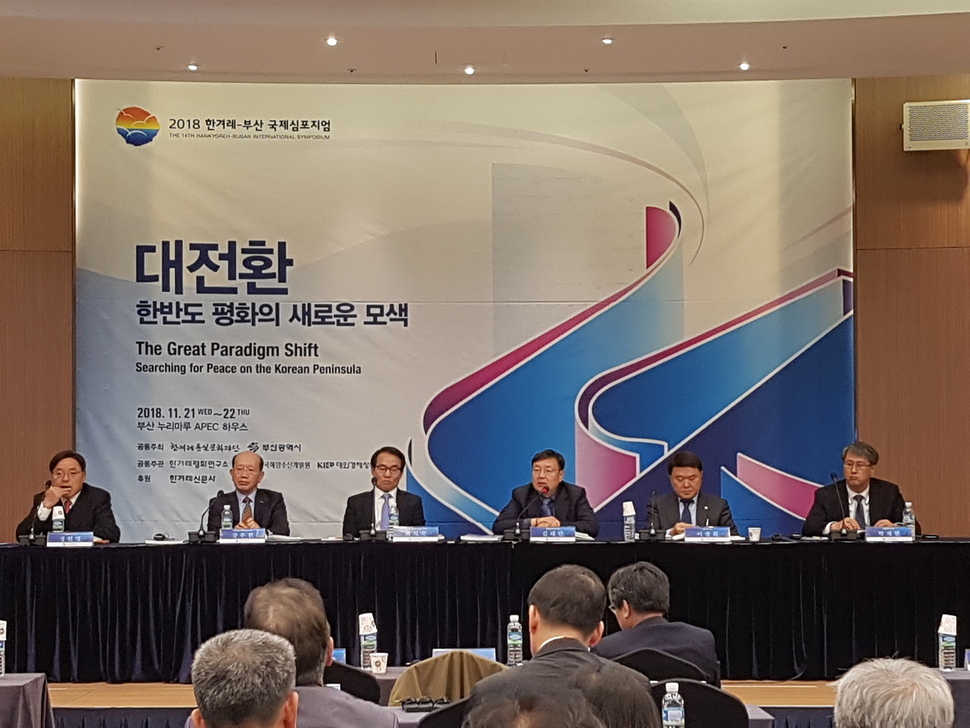 |
|
Experts discuss the topic of constructing a new airport in southeastern Korea at the 14th Hankyoreh-Busan International Symposium held at Nurimaru APEC House in Busan on Nov. 22. (Kim Kwang-soo, Busan correspondent)
|
Surveys indicate increasing numbers of young people who support peace and reunification
Busan-area university students stressed the need to broaden the “common denominator” in the reunification debate through the value of “peace” based on an analysis of young people’s positions for and against. The students were participating in a discussion on “Young People and Peace on the Korean Peninsula,” a session at the 14th Hankyoreh-Busan International Symposium held at Nurimaru APEC House in Busan on Nov. 22. To begin with, the students noted a positive shift in young people’s attitudes toward reunification amid the larger shift from threats of war on the peninsula toward peace in the wake of three inter-Korean summits this year. “Surveys by the Seoul National University Institute for Peace and Unification Studies on views regarding reunification showed a majority of participants in their twenties and thirties supporting reunification,” they noted. “While the statistical data did not capture all of young people’s thoughts on the issue, they do show that many young people are aware of the need for unification of South and North,” they said. As chief reasons for supporting reunification, they listed a reduction of defense spending and other costs associated with political division; profits from the exploration of North Korean rare-earth elements and other underground resources and tourism resources; ripple effects from the linkage of land-based transportation and distribution networks; and the possibility of resolving the issue of unemployment among young people through an increased employment market as industries are promoted. Yeokdong, a history club for Busan-area university students, explained, “Economic development, peace on the Korean Peninsula, the Korean nation, resolving the issue of divided families, and the possibility of exploring North Korean underground reasons were the chief reasons given for supporting reunification.” Why opponents of reunification view North Korea as an “enemy” rather than a partner Young people who opposed reunification viewed North Korea as an “enemy” rather than a partner in cooperation. The main reasons mentioned were its repeated nuclear tests and other military provocations. The astronomical costs of Germany’s reunification were also given as a reason for opposition. Some respondents said they were not interested in reunification because they did not think it would have a major impact on young people’s lives. An Inje University unification studies department team also raised the issue of “media that have focused on negative reporting on North Korea,” as with the issue of sanctions. “This has led to North Korea being viewed in terms of a relations of hostility or support rather than cooperation. The preconceptions have been planted, and this has led ultimately to people seeing no need for reunification,” the team noted. University students participating in the debate said that while opinions on unification were divided, everyone “agreed about the value of peace.” They also voiced hopes that an “agreement can be found in the debate by considering different ideas for reunification.” A Chinese studies team from Dong-A University noted, “The aim of reunification is peace on the Korean Peninsula.” “We see true unification coming when there is mutual understanding through interchange based in trust. South and North are important partners who need to move forward together for the sake of unification,” they said. By Kim Yeong-dong, staff reporter Please direct comments or questions to [english@hani.co.kr]






